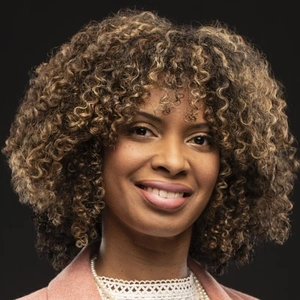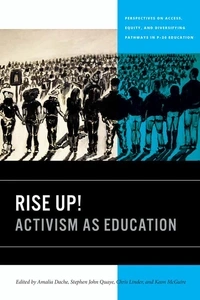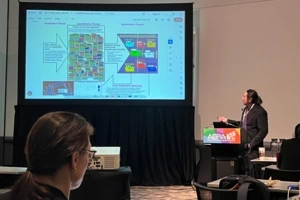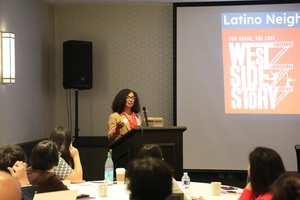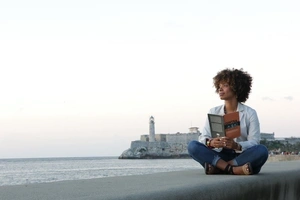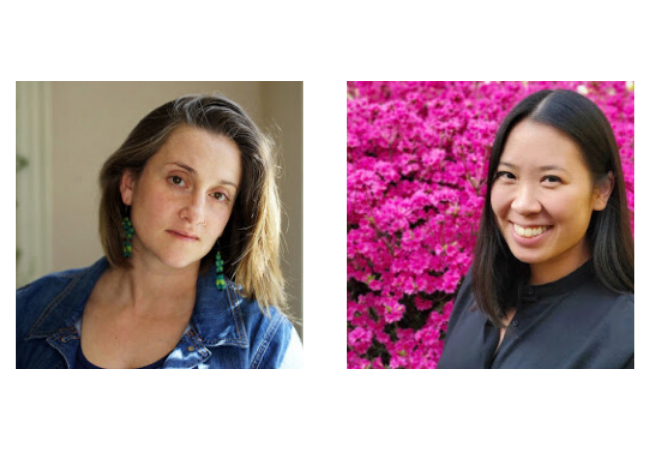Biography
Amalia Daché is an Afro-Cuban American scholar and associate professor of higher education at the University of Pennsylvania. Her experiences as a 1980s Mariel boatlift refugee and student navigating U.S. inner-city schools, community college, state college, and a private research-intensive university contribute to her lines of inquiry. Dr. Daché’s major research areas are postcolonial geographic contexts of higher education, Afro-Latina/o/x studies, community and student resistance, and the college-access experiences of African diasporic students and communities.
She is lead editor of Rise Up! Activism as Education, published in 2019 by Michigan State University Press. Her most recent article, “Bus-Riding from Barrio to College: A Qualitative Geographic Information Systems (GIS) Analysis,” appeared in The Journal of Higher Education in 2021. Dr. Daché engages in research within contested urban geographies, including Havana, Cuba; Cape Town, South Africa; and Ferguson, Missouri. She has won numerous awards and fellowships from the National Academy of Education, Spencer Foundation, Association for the Study of Higher Education, and The Rockefeller Institute.
Dr. Dache has appeared as an expert in film and national media outlets, including Spike Lee’s documentary Two Fists Up, Red Table Talk: The Estefans, MSNBC’s The ReidOut with Joy Reid, American Voices with Alicia Menendez, José Díaz-Balart Reports, Slate’s A Word with Jason Johnson podcast, NPR’s Weekend Edition Sunday with Lulu Garcia-Navarro, #SOSCuba podcast with Enrique Santos, Black News Tonight with Marc Lamont Hill, The Washington Post, Foreign Policy, Politico, The Philadelphia Inquirer, and Al Día.
Education
- Ph.D. (Educational Leadership) University of Rochester, 2014
- M.A. (Liberal Studies) SUNY Empire State College, 2009
- B.A. (English Literature) SUNY Brockport State College, 2003
- A.S. (Liberal Studies) SUNY Monroe Community College, 2001
Areas of Expertise
- Postcolonial studies
- Community and student resistance
- Urban geography
- College access
- AfroLatina/o/x studies
Academic Programs
Executive Doctorate in Higher Education Management, Ed.D. Global Higher Education Management, M.S.Ed. Higher Education, Ed.D. Higher Education, M.S.Ed. Higher Education, Ph.D.Research Interests and Current Projects
In 2018–2019 in Havana, Dr. Daché conducted an ethnographic study of cultural memory through the educational histories of Havana’s Cubans. A number of features make Cuba an important site of inquiry for issues related to higher education access and global democracy, including that 70 percent of the country’s population is of African descent. Cuba’s history of aspiring toward a racial democracy during its colonial and postcolonial periods, and its political-economic revolutionary context, make this study an important contribution in the area of comparative and international education. Dr. Daché was awarded a 2020 University Research Foundation grant to extend her Cuba study to the United States, where she is exploring the educational histories of sea migrants, the 1990s balseros (rafters), and 1980s Mariel refugees. The combined project is titled “Mysteries at the Bottom of the Ocean: A Racial and Political Hemispheric Analysis of Education and Economic Mobility for Cuban Nationals and Refugees.”
Dr. Daché is also completing a mixed-method study, “Mapping Public Housing and Urban Higher Education Accessibility and Enrollment in Philadelphia,” which is her 2020 NAEd/Spencer Foundation Postdoctoral Fellowship project. In this study she is collaborating with a North Philadelphia Housing community that is both predominately Puerto Rican and Afrolatina/o/x to learn of their educational trajectories navigating the local landscape of Philadelphia.
